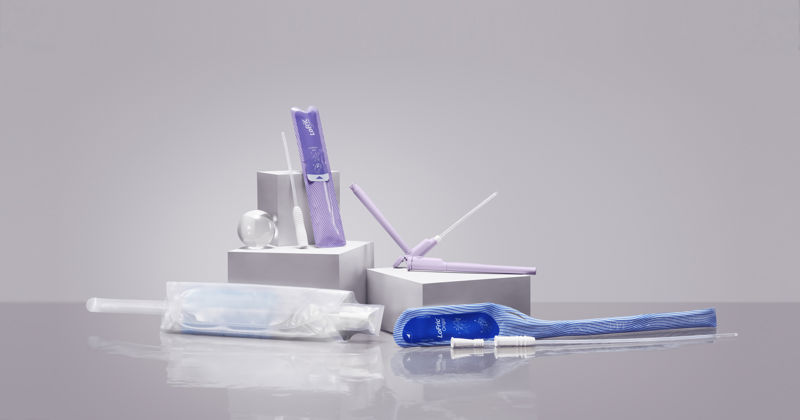
What is MS and How Does it Affect Your Bladder and Bowel?
In Multiple sclerosis (MS) the immune system attacks the protective sheath (myelin) that covers nerve fibers and causes communication problems between your brain and the rest of the body.
It is estimated that over 2.3 million individuals are living with MS and its complications worldwide, but treatments can help modify the course of the disease and manage symptoms.
The degree of symptoms differs among individuals, but up to 95% of the MS population will suffer from bladder issues and incontinence (Peyronnet et al. Reviews in Urology 2019). Also, effects on the bowel are common and affect up to 70% of people with MS (Preziosi et al. Degenerative Neurological and Neuromuscular Disease 2018). Constipation and/or bowel leakage may be one of the first presenting symptoms of MS. There are solutions available to aid this.
Why Does MS Affect the Bladder and Bowel?
The spinal cord plays a central role in bladder and bowel function. When MS damages the myelin, messages between the brain and the section of the spinal cord that controls the bladder and bowel can be interrupted, resulting in bladder and bowel dysfunction.
The areas of the central nervous system that control the urinary system are situated in the lower part of the brain and the lower part of the spinal cord. Messages are transmitted between the brain and the urinary system along the nerves that make up the spinal cord.
- Lesions may lead to changed or interrupted nerve transmission
- Pathways destroyed – nerve signals do not reach their destination
- Less control of nerve signals and muscular coordination leads to either under-activity or over-activity of the muscles in the bladder walls.
The bowel function is controlled by the brain and spinal cord, as well as the bowel’s own nervous system: the enteric nervous system, which coordinates movements, secretion, and absorption of the content in the bowel. Bowel dysfunction in MS is similar to bowel dysfunction in spinal cord injuries and is called neurogenic bowel dysfunction (NBD). The precise mechanism underlying NBD in MS is not known, but lesions in the brain and the spinal cord have been shown to:
- Delay nerve signals to the anal sphincter
- Muscle coordination issues resulting in problems with emptying the bowel
- Loss of voluntary control over bowel emptying
NBD causes constipation, fecal incontinence, and time-consuming bowel care. Constipation may also complicate bladder emptying and increase the frequency of urinary tract infections (link to the UTI blog post to be published later this spring). It is not only the damage to the nerve signals that affect the bowel function in MS, medications and reduced ability to move also have an impact on bowel function.
What is MS?
In MS, the immune system attacks the protective sheath (myelin) that covers nerve fibers and causes communication problems between your brain and the rest of your body. Eventually, the disease can cause permanent damage or deterioration of the nerves. The body can repair the damage to the myelin sheet, but it’s not perfect. The resulting damage reveals lesions and scars, and this is where the name comes from, Multiple sclerosis, multiple scars.
Who Gets MS?
We don’t know what causes MS, but there are certain factors that may increase the risk or trigger the onset. MS can occur at any age, but it mostly makes its first appearance in people aged between 20-40. Low exposure to Vitamin D and sunlight has been shown to increase the risk of developing MS. This may be why people of Northern European descent are among the highest risk of developing MS globally. Other factors correlated to increased risk are overweight, smoking, inflammatory diseases, and a variety of viruses. Women are up to three times as likely as men to develop MS. The risk for MS in the general population is 0.5% and increases to 1% if a parent or sibling has it.
What Are The Symptoms of MS?
Symptoms of relapse usually come on over 24 to 48 hours, last for a few days to a few weeks, and then improve in the region of 80 to 100%. Common symptoms include loss of vision in an eye, loss of power in an arm or leg, and numbness in one or more limbs. Studies show that up to 95% of the MS population will experience urinary incontinence and about 70% will suffer from constipation and/or fecal incontinence. By increasing knowledge about treatment options and symptom relief, we can considerably improve quality of life!
What Treatments Are Available For MS?
There's no cure for the disease, however, treatments can help speed recovery from attacks, modify the course of the disease, and manage symptoms. The best thing to do when living with MS is to find a trusted interdisciplinary medical team that can help you monitor and manage the conditions. There are many options to help you live a full life. Further down in this text, we will guide you to the available solutions that could help you manage and take control of your bladder and bowel.
Take Control Over Your Bladder & Bowel
-
How Can LoFric Help You Take Control of Your Bladder?
Even though the problems experienced by MS patients are very individual, the majority of patients will experience issues with urination. For people with MS, it is particularly important to continue with prescribed bladder emptying treatments in the same way over time. The progression of the disease can be very unpredictable, making proper urination harder in some periods, and easier in others. But even a small amount of residual urine can lead to urinary tract infections. This in turn has been shown to potentially cause new attacks or the return of an attack that had previously receded.

-
How Can Navina Bowel Irrigation Help You Take Control Over Your Bowel
Bowel irrigation, also known as Transanal irrigation (TAI), has been shown to be an effective treatment to bowel problems. It does not only improve symptoms of constipation and reduce accidental bowel leakage, but also reduces the time spent on bowel care as well as need of healthcare. People with MS using TAI have fewer hospital admissions and physician’s visits than before using TAI as well as fewer urinary tract infections.

-
Bladder and Bowel Dysfunction
What is bladder and bowel dysfunction and how do they correlate with each other? In a lot of cases, bladder and bowel symptoms coexist side by side and interact. Here we explore why.

-
Living with Bowel Problems
Here we explore our best tips and tricks for anyone starting their bowel care journey.

-
Living with Bladder Problems
To live with a condition that requires you to catheterize on a regular basis may feel overwhelming in the beginning. Find comfort in the fact that you are not alone.
